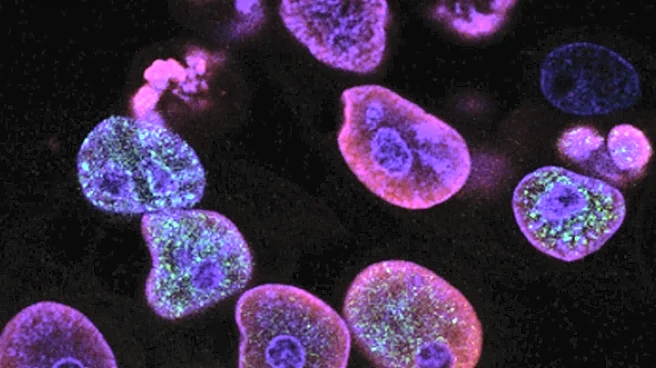What's Happening?
A study published in Nature has found that downregulating autophagy in the amygdala can alleviate anxiety-like behaviors in mice modeled for Post-traumatic Stress Disorder (PTSD). Autophagy, a process that regulates the turnover of proteins and organelles, is generally protective during stress. The study involved exposing mice to single-prolonged stress to induce PTSD-like symptoms and then using lentivirus-mediated shRNA to downregulate autophagy-related genes in the amygdala. Behavioral tests showed reduced anxiety and fear responses in treated mice, suggesting that targeting autophagy pathways could be a potential therapeutic strategy for PTSD.
Why It's Important?
This research highlights the role of autophagy in stress-related disorders and opens new avenues for PTSD treatment. By demonstrating that autophagy downregulation can reduce anxiety, the study suggests a novel approach to managing PTSD symptoms, which could lead to more effective therapies. Understanding the molecular mechanisms underlying PTSD is crucial for developing targeted treatments that address the root causes of the disorder rather than just alleviating symptoms. This could improve the quality of life for individuals suffering from PTSD and reduce the societal burden associated with the disorder.
What's Next?
Further research is needed to explore the long-term effects of autophagy modulation in the brain and its potential side effects. Clinical trials may be necessary to determine the efficacy and safety of autophagy-targeted therapies in humans. Additionally, researchers may investigate whether similar mechanisms apply to other stress-related disorders, potentially broadening the scope of treatment options available.
Beyond the Headlines
The study raises ethical considerations regarding the manipulation of brain processes to alter behavior. While the potential benefits for PTSD treatment are significant, there is a need for careful consideration of the risks and ethical implications of such interventions. Ensuring that treatments are safe, effective, and accessible to all patients will be crucial as this research progresses.










